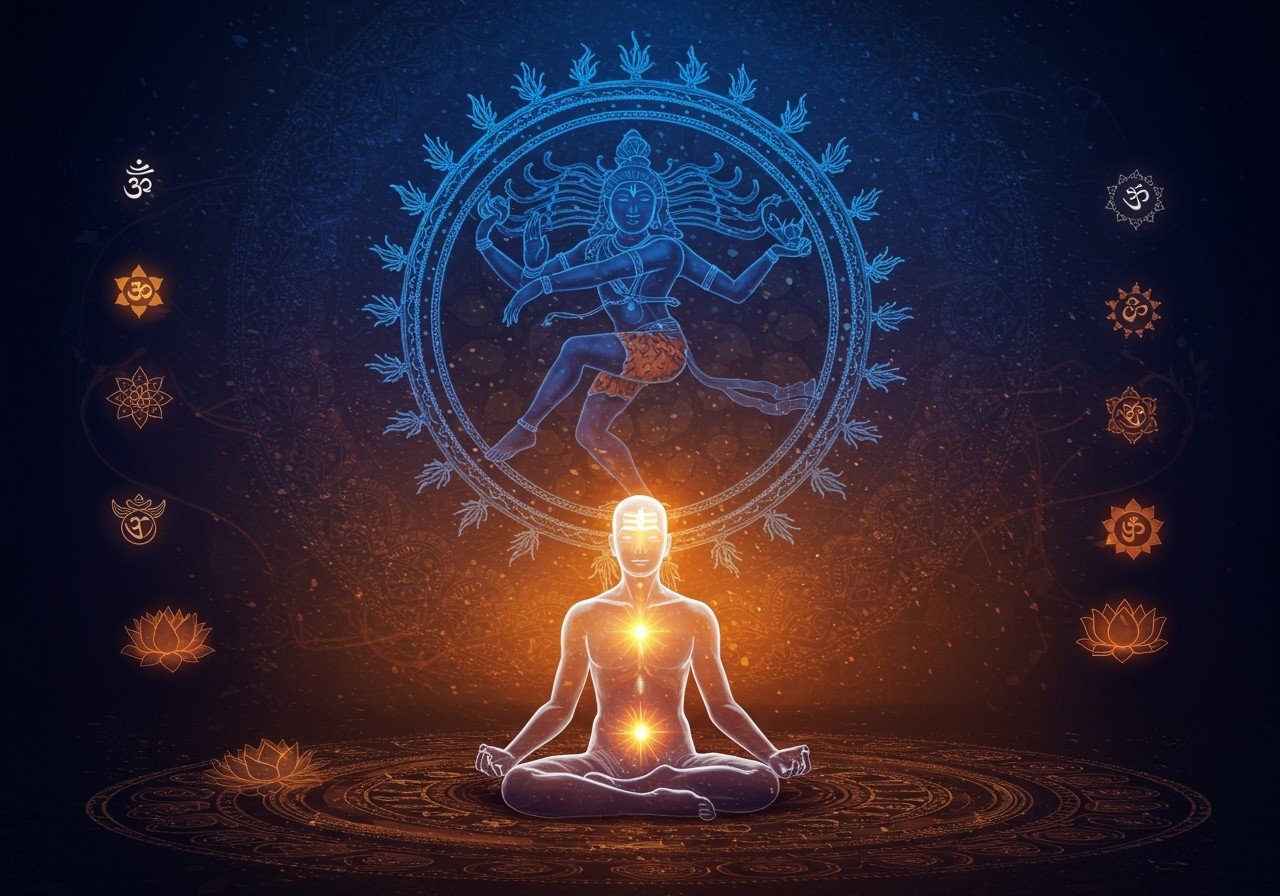
Hinduism and Yoga share a profound connection, extending beyond mere physical postures. Rooted in ancient Indian traditions, Yoga’s origins can be traced back to sacred texts like the Vedas and Upanishads. Within Hindu philosophy, Yoga transcends physical exercise; it represents a transformative journey toward spiritual enlightenment, holding significant cultural importance in daily life and rituals.
Historical Context of Yoga in Hinduism
Yoga’s history is ancient, with references found in Hindu scriptures such as the Bhagavad Gita, Yoga Sutras of Patanjali, and the Upanishads. Initially a spiritual discipline, Yoga’s evolution into a global practice has not diminished its core teachings. During the Vedic period, Yoga played a vital role in rituals and meditative practices. Ancient sages, like Patanjali, have profoundly influenced modern Yoga. Understanding these historical roots illuminates the enduring spiritual and philosophical essence of Yoga within Hinduism. A deeper exploration into the history of yoga can be found in our blog post on Yoga and Spirituality.
Philosophical Underpinnings of Yoga in Hinduism
Hindu philosophy views Yoga as a comprehensive way of life, not just a set of exercises. Foundational principles like Dharma (duty), Karma (action), and Moksha (liberation) guide Yoga practices. The Bhagavad Gita, a revered Hindu text, emphasizes these concepts. Explore our collection of Bel malas and Tulsi malas to enhance your meditation practice.
Ashtanga Yoga, the Eight Limbs of Yoga, provides a roadmap for spiritual development. Yama and Niyama, ethical guidelines emphasizing self-discipline, help practitioners achieve balanced and harmonious living. Meditation and mindfulness are integral to Hindu Yoga traditions, guiding individuals toward self-realization and union with the divine. These practices cultivate inner peace and understanding. For beginners seeking inner calm through meditation, our blog post on meditation techniques offers valuable insights.
Yoga as a Spiritual Practice for Hindus
Yoga serves as a potent spiritual tool within Hinduism, seamlessly integrating into daily rituals to foster spiritual well-being. Mantras and chanting elevate the mind, while Pranayama (breathing exercises) enhance focus and clarity. Yoga facilitates personal transformation, guiding individuals toward higher consciousness and a deeper connection with their inner selves. This pursuit of enlightenment is central to Hindu beliefs. Discover the power of mantra chanting with our blog post on Mantra Chanting: Sound, Vibration, and Healing Power.
The Role of Yoga in Hindu Rituals and Festivals
Yoga is woven into Hindu rituals and festivals. Surya Namaskar, or Sun Salutation, honors Surya, the Sun God. Yoga practiced during festivals like Diwali and Navratri fosters spiritual renewal. Mass Yoga gatherings, such as those on International Day of Yoga, underscore its cultural significance. These events celebrate unity and devotion, highlighting Yoga’s integral role in Hindu rituals. Poojn.in offers a wide selection of camphor and camphor tablets to enhance the sanctity of your rituals.
Modern Adaptations of Yoga in Hindu Culture
Yoga remains deeply relevant within Hindu communities globally. Traditional practices harmoniously blend with modern lifestyles, preserving their spiritual core. Yoga supports physical and mental well-being, offering solace in today’s demanding world. Online platforms have broadened Yoga’s accessibility. Hindus worldwide connect and share their cultural heritage through digital media, fostering a sense of community and belonging. Deepen your understanding of Hinduism with our blog post on Hinduism: A Celebration of Diversity and Tradition. Discover the practical applications of ancient Vedic wisdom for modern life in our blog post Vedas: Ancient Wisdom for Modern Life – Practical Applications and delve into the holistic approach of Yoga and Ayurveda with our blog post Yoga & Ayurveda: A Holistic Wellbeing Approach.
Origins and Evolution of Yoga’s Relationship with Hinduism
Yoga’s connection to Hinduism is multifaceted. While deeply rooted in Hindu philosophy, yoga has evolved and transcended religious boundaries in many forms. Here’s a breakdown:
- Origins: Yoga originated in ancient India, referenced in the Vedas, Hinduism’s foundational texts. The Rig Veda, one of the oldest, mentions “yoga” in the context of mind-body control. This highlights the historical and spiritual depth of yoga’s origins within the Hindu tradition. Yoga’s ancient roots emphasize its enduring relevance in spiritual practices.
- Hinduism’s Influence: Early yoga forms developed within Hinduism as a path to unite with the divine, achieving higher consciousness. The deity Shiva is associated with yoga, and Hindu philosophical concepts influence classical yoga texts like Patanjali’s Yoga Sutras. This demonstrates the significant role of Hindu philosophy in shaping yoga’s core principles. It showcases how ancient Hindu beliefs have shaped yoga into the practice it is today.
- Spiritual Practice: Yoga is a spiritual practice meant to purify and prepare the mind and body to recognize the “atman” (soul) and unite it with Brahman (the divine). This union, “Moksha” or “Mukti” (liberation from rebirth), is the ultimate goal in Hindu philosophy. This explains yoga’s spiritual significance within Hinduism, emphasizing its focus on self-realization and liberation. This highlights yoga’s transformative power in helping individuals connect with their spiritual core.
- Evolution and Contemporary Practice: Yoga has evolved over time. It’s now practiced by people from various backgrounds, often to improve physical health, reduce stress, and enhance mental well-being. This doesn’t necessitate connecting it to Hinduism or other religious systems. This explains yoga’s widespread appeal beyond religious contexts, emphasizing its benefits for physical and mental well-being. It illustrates how yoga has adapted to modern needs while retaining its core principles.
- Not Necessarily Hinduism: Practicing yoga doesn’t require Hindu conversion. While aligned with Hindu thought, yoga is a spiritual tool for all seekers, regardless of faith. This clarifies that yoga is accessible to everyone, regardless of religious beliefs. It emphasizes yoga’s universal appeal as a path to spiritual growth and self-discovery.
Yoga is considered a gift from Vedic Hinduism to the world. It utilizes the mind, breath, speech, and body to achieve God Realization, resulting in pure bliss. Consider exploring our blog post on the Hanuman Chalisa for further spiritual exploration.
Exploring the Significance of Yoga in Coping with Grief and Loss
Hindu rituals offer profound support in navigating grief and loss. For further understanding of these rituals, explore our informative blog post: Hindu Rituals: A Guide to Coping with Grief and Loss.
Embracing the Timeless Union of Hinduism and Yoga
The relationship between Hinduism and Yoga represents a beautiful journey of spiritual discovery and self-realization. Grounded in ancient philosophy, Yoga provides a path to inner peace and enlightenment. It seamlessly integrates into Hindu rituals, enriching daily life and festive celebrations. As Yoga adapts to modern times, it honors its sacred origins, offering balance and harmony. You can find beautiful statues of deities like Shiva and others at poojn.in here and here.
For Hindus, Yoga is more than just a practice; it’s a way to connect with the divine and realize their true selves. By embracing Yoga’s teachings, individuals carry forward a tradition that nurtures the mind, body, and spirit. As the world embraces Yoga, its essence remains a testament to Hinduism’s timeless wisdom, guiding countless souls toward unity and peace. Embark on a spiritual journey with a visit to the Draksharama Temple, detailed in our blog post: Draksharama Temple: A Spiritual Journey.
FAQs on Hinduism and Yoga
Why do Hindus practice yoga? Hindus engage in yoga for spiritual growth and self-realization. Yoga helps connect mind, body, and spirit, facilitating inner peace and harmony. It allows individuals to connect with their spiritual core and find balance in their lives. This connection is further strengthened through practicing gratitude. Explore our blog post on cultivating gratitude for a deeper understanding.
What is yoga to Hindus? To Hindus, yoga is more than physical exercise. It’s a spiritual practice involving meditation, breathing techniques, and ethical living, aiming to unite the individual soul with the universal spirit. It encompasses a holistic approach to well-being, encompassing physical, mental, and spiritual aspects.
How important is yoga for Hindus? Yoga holds deep importance for Hindus. Rooted in ancient texts like the Vedas and Upanishads, it’s a path to enlightenment, playing a crucial role in spiritual development. It provides a framework for living a meaningful and fulfilling life, aligned with Hindu values.
Is yoga only a physical exercise in Hinduism? No, yoga in Hinduism transcends the physical. It incorporates mental and spiritual practices promoting self-discipline, inner peace, and mindfulness. It fosters a deeper connection with oneself and the divine.
What are the different types of yoga in Hinduism? Hinduism encompasses various yoga types, including Bhakti Yoga (devotion), Karma Yoga (action), Jnana Yoga (knowledge), and Raja Yoga (meditation). Each focuses on different spiritual growth aspects, providing diverse paths to self-realization.
Can non-Hindus practice yoga? Yes, yoga welcomes practitioners of all backgrounds. Though rooted in Hinduism, yoga’s universal practice benefits anyone seeking physical health and mental peace. It transcends religious boundaries, offering a path to well-being for all.
Does yoga have any religious significance in Hinduism? Yes, yoga holds religious significance in Hinduism. It’s a sacred practice aiding connection with the divine and attaining moksha, liberation from the cycle of rebirth. It is deeply intertwined with Hindu beliefs and philosophy.


